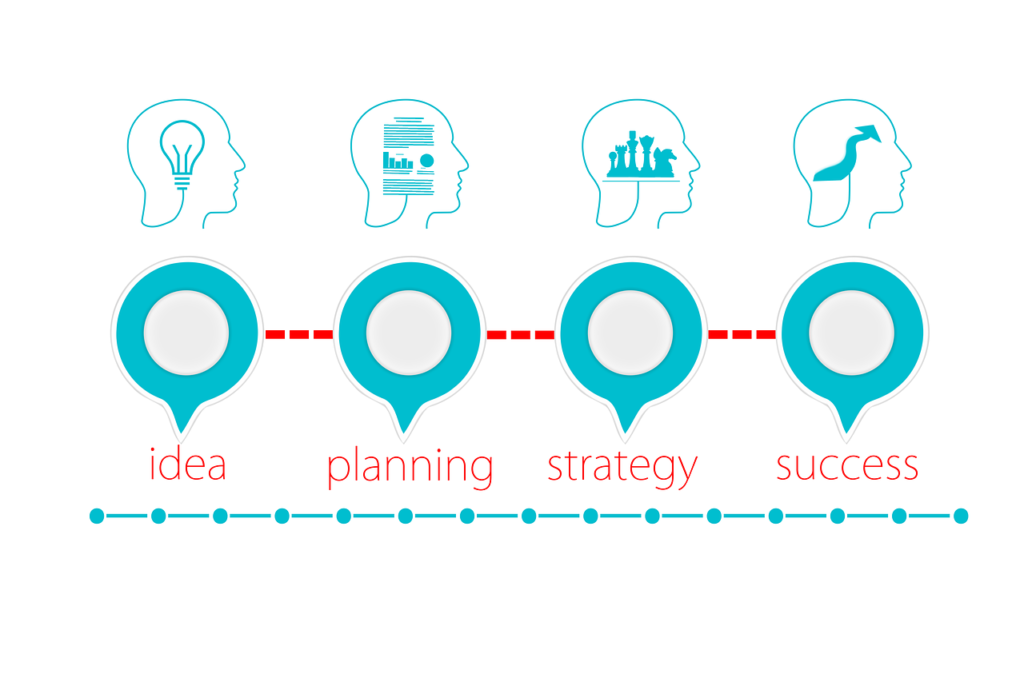You’re eager to find a company that values your growth and provides opportunities for skill development. But how can you determine if a company meets this criteria? With so many options out there, it’s important to have a clear strategy to assess a company’s commitment to your professional development. In this article, we’ll explore some key indicators that can help you determine if a company offers the opportunities you’re seeking. So, put on your detective hat and let’s uncover the secrets to finding a company that will support your skill development journey.

Researching Company Culture
Checking the Company’s Website
When researching a company’s culture, the first place to start is by visiting their official website. The company’s website can provide valuable insights into their mission, values, and overall culture. Look for sections that detail the company’s core beliefs and priorities. Pay attention to the language and tone used throughout the website as it can give you a sense of the company’s values and work environment. Take note of any initiatives or programs related to employee development and training that are mentioned on the website.
Reading Employee Reviews
Employee reviews are another useful resource when determining the opportunities for skill development within a company. Websites like Glassdoor or Indeed provide employees with a platform to share their experiences working for a company. Take the time to read through these reviews to gain a better understanding of the company’s culture. Look for reviews that mention opportunities for skill development, training programs, and career progression. It’s important to read a variety of reviews to get a well-rounded perspective, as some individuals may have had different experiences than others.
Reviewing Company Social Media
Exploring a company’s social media presence can offer additional insights into their culture and commitment to skill development. Many companies use social media platforms to highlight their employees, showcase their training programs, and share success stories. Pay attention to the type of content they post and the engagement from employees. Companies that actively promote skill development opportunities through their social media channels likely have a strong focus on employee growth and development.
Exploring Company News and Announcements
Company news and announcements can also provide valuable information about the opportunities for skill development within a company. Keep an eye out for news articles, press releases, or blog posts that mention employee training initiatives, promotions, or new programs. These announcements demonstrate a company’s commitment to investing in their employees and providing opportunities for growth. Regular updates and news about employee development initiatives are indicators of a company’s dedication to fostering a culture of continuous learning and skill development.
Evaluating Training Programs
Reviewing Formal Training Programs
A crucial aspect of determining a company’s commitment to skill development is assessing their formal training programs. These programs are designed to provide employees with the necessary knowledge and skills to excel in their roles. Look for comprehensive, well-structured training programs that cover both technical and soft skills. Pay attention to the duration and intensity of the programs to ensure they offer sufficient training opportunities. Additionally, consider if the company offers certifications or professional development courses that can further enhance an employee’s skill set.
Investigating On-the-Job Training Opportunities
On-the-job training is an invaluable aspect of skill development within a company. It involves learning from experienced colleagues or mentors while performing one’s regular duties. Research if the company offers on-the-job training opportunities and mentoring programs. These initiatives can provide employees with hands-on experience, allowing them to develop new skills and expand their knowledge base. Companies that prioritize on-the-job training are more likely to foster a supportive and learning-oriented work environment.
Assessing Mentorship and Coaching Programs
Mentorship and coaching programs are essential for skill development and personal growth. These programs pair less experienced employees with seasoned professionals who can guide and support their development. Assess if the company has established mentorship or coaching programs and how they are structured. Look for evidence of regular check-ins, goal setting, and ongoing support. Companies that invest in mentorship programs show a commitment to nurturing talent and providing employees with opportunities to learn and grow.
Examining Continuing Education Support
Continuing education support is a crucial factor when evaluating a company’s commitment to skill development. Determine if the company offers financial assistance or resources to support employees’ pursuit of further education. Look for tuition reimbursement programs, scholarships, or partnerships with educational institutions. Companies that encourage employees to continue their education demonstrate a dedication to keeping their workforce up-to-date with current industry trends and advancements.

Assessing Career Progression
Examining Internal Job Postings
When evaluating a company’s commitment to skill development, it is important to assess the opportunities for career progression within the organization. Explore the company’s internal job postings or career portal to understand the types of roles available to employees as they progress in their careers. Look for a variety of roles at different levels, indicating a clear career progression structure. Companies that prioritize internal promotions are more likely to provide opportunities for employees to develop new skills and advance their careers within the organization.
Looking for Promotion Opportunities
Promotion opportunities are a strong indicator of a company’s commitment to skill development. Assess whether the company has a formal promotion process or if promotions are based on merit and performance. Look for examples of employees being promoted from within the organization and if the company provides training or development opportunities to prepare employees for higher-level roles. Companies that offer frequent promotions and invest in their employees’ professional growth are more likely to foster a culture of skill development.
Considering Performance Review Structures
Performance reviews play a crucial role in assessing an employee’s growth and development within a company. Look into the company’s performance review structure to determine if it aligns with skill development. Companies that have regular performance reviews, with clear criteria and feedback mechanisms, allow employees to identify areas for improvement and set goals for skill development. Performance reviews should also provide opportunities for managers to discuss training and development needs with employees.
Exploring Employee Testimonials
Employee testimonials can provide valuable insights into a company’s commitment to career progression and skill development. Look for testimonials from current or former employees who mention opportunities for growth, career advancement, and skill development. Pay attention to specific examples mentioned in the testimonials, such as training programs or mentorship opportunities. Employee testimonials can offer a firsthand perspective on the company’s culture and its support for employees’ professional development.
Analyzing Employee Development Initiatives
Checking for Performance Development Plans
Performance development plans are important tools in assessing a company’s commitment to skill development. These plans outline specific goals and objectives for an employee’s professional growth and skill enhancement. Research if the company has a formal process for creating performance development plans and if they are regularly reviewed and updated. Look for evidence of goals related to skill development and opportunities for employees to receive necessary training or resources to achieve those goals.
Investigating Professional Development Budgets
A company’s investment in professional development budgets is a strong indicator of their commitment to skill enhancement. Research if the company allocates specific budgets for employees’ professional development. Look for evidence of financial support for attending conferences, workshops, or industry-specific training programs. Companies that provide ample resources for professional development demonstrate their dedication to helping employees acquire new skills and stay up-to-date with industry trends.
Assessing Employee Training Feedback
Feedback from employees who have participated in training programs can offer valuable insights into a company’s commitment to their skill development. Investigate if the company gathers feedback from employees who have undergone training initiatives. Look for evidence that the company uses this feedback to improve training programs and tailor them to employees’ needs. Companies that actively seek and act upon training feedback create a culture of continuous improvement and ensure employees receive high-quality development opportunities.
Exploring Leadership Development Programs
Leadership development programs are an important aspect of employee development initiatives. These programs aim to identify and nurture potential future leaders within the organization. Look into whether the company offers leadership development programs and how they are structured. Assess if the programs provide employees with the necessary skills and knowledge to transition into leadership roles. Companies that prioritize leadership development invest in their employees’ long-term growth and offer opportunities for skill development at various career stages.

Reaching Out to Current Employees
Initiating Informational Interviews
Conducting informational interviews with current employees can provide unique perspectives on a company’s commitment to skill development. Reach out to employees working within your desired department or role and request an informational interview. During these interviews, ask about their experiences with skill development opportunities within the company. Inquire about training programs, mentorship, and any ongoing development initiatives they’ve participated in. Current employees can provide valuable firsthand insights into the company’s culture and commitment to employee growth.
Asking About Skill Development Opportunities
When reaching out to current employees, be sure to ask specific questions about skill development opportunities. Inquire about the availability of training programs, on-the-job learning opportunities, and resources for professional growth. Ask about their personal experiences with skill development and how the company supports their growth in their roles. By asking targeted questions, you can gain a better understanding of the company’s investment in skill development and the opportunities available to employees.
Discussing Employee Satisfaction
Employee satisfaction is closely tied to skill development and growth opportunities within a company. During your informational interviews, engage in conversations about employee satisfaction. Ask about the work environment, company culture, and how supported employees feel in their skill development journey. Discussions around employee satisfaction can provide valuable insights into whether a company offers a conducive environment for skill development and if employees feel valued and supported in their career progression.
Inquiring About Supportive Resources
In addition to skill development opportunities, it is important to assess the availability of supportive resources within a company. During informational interviews, ask about the resources and tools provided to employees to aid their skill development. Inquire about platforms for e-learning, access to industry-specific databases, or any other resources that facilitate ongoing learning and growth. Companies that prioritize supportive resources demonstrate their commitment to fostering a culture of continuous learning and providing employees with the necessary tools to enhance their skills.
Attending Company Events
Participating in Career Fairs
Attending career fairs hosted by the company you are interested in can offer invaluable insights into their commitment to skill development. Career fairs are an opportunity to interact with company representatives and learn more about their training and development programs. Engage in conversations with recruiters or employees present at the career fair, and inquire about skill development initiatives, leadership programs, and opportunities for career progression. Career fairs can provide a firsthand glimpse into a company’s culture and the opportunities available for skill development.
Attending Recruitment Sessions
Recruitment sessions are another avenue to gather information about a company’s commitment to skill development. These sessions are typically organized by companies to attract potential candidates and provide an overview of their organization. Pay attention to presentations or discussions around training programs, mentorship, and employee development opportunities. Recruitment sessions can offer valuable insights into a company’s investment in skill development and their dedication to nurturing talent.
Engaging in Employee Networking Events
Employee networking events provide an opportunity to connect with current employees and gain insights into a company’s culture and commitment to skill development. Attend networking events organized by the company and engage in conversations with employees from various departments. Through these conversations, learn about the company’s training programs, opportunities for skill enhancement, and experiences with career progression. Networking events allow you to gather firsthand perspectives, helping you to assess whether a company offers ample opportunities for skill development.
Joining Webinars or Workshops
Webinars and workshops organized by a company are often centered around skill development and industry-specific topics. Consider joining these events to gain insights into a company’s dedication to employee development. Participate in webinars or workshops related to your area of interest and pay attention to the content and caliber of presenters. These events provide a glimpse into the quality of training programs and the company’s commitment to keeping employees informed and up-to-date with industry trends.

Analyzing Employee Turnover Rates
Reviewing Employee Retention Statistics
Employee turnover rates can provide valuable insights into a company’s commitment to skill development. Research the company’s employee retention statistics to understand the turnover rate within the organization. High turnover rates may indicate a lack of opportunities for skill development or dissatisfaction among employees. Conversely, low turnover rates may suggest that the company values skill development and supports employees’ growth and career progression.
Assessing Reasons for Employee Departures
When analyzing employee turnover rates, it is important to assess the reasons for employees’ departures. Look for patterns or common reasons cited by employees who have left the company. If lack of skill development opportunities is a recurring theme, it may indicate a significant gap in the company’s commitment to employee growth. Similarly, if employees consistently mention skill development as a contributing factor in their decision to leave, it suggests that the company may not prioritize or invest in development initiatives.
Analyzing Turnover in Key Skill Areas
Examine turnover rates specifically within key skill areas to gauge the impact on skill development. If high turnover rates occur in critical skill areas, it may indicate insufficient development opportunities or inadequate recognition of employees’ skills. When analyzing turnover rates, consider positions that require specialized knowledge or technical expertise. Companies that proactively address turnover in these areas and invest in ongoing development demonstrate a commitment to ensuring employees have opportunities to develop and excel in their roles.
Examining Company Policies
Investigating Tuition Reimbursement Programs
Tuition reimbursement programs are a strong indicator of a company’s commitment to employee skill development. Research if the company offers tuition reimbursement for employees pursuing further education related to their roles. Look for details on the maximum amount of reimbursement, any restrictions on the type of programs eligible for reimbursement, and the process for obtaining approval. Companies that offer tuition reimbursement programs demonstrate a willingness to invest in their employees’ long-term development and value their continuous learning.
Checking Flexible Work Arrangements
Flexible work arrangements can have a direct impact on skill development opportunities. Research if the company offers flexible work options such as remote work or flexible schedu



